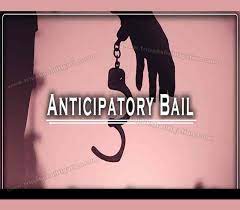When To Apply For An Anticipatory Bail?
There are two situations, First-Complaint is registered in a police station for registration of an FIR and Second-FIR is registered in the Police Station. In first case, you cannot file an anticipatory bail as, FIR has not registered. In such a scenario, the person can go to the Police Station and participate in the investigation without any apprehension of arrest. However, in the Second case, where an FIR is registered against the person, the foremost thing to do is to get a copy of the said FIR (the copy of FIR can be obtained from the official website of Police or from the Police Station). It is advisable to send your friend, relative or family member to the police station for obtaining the copy of the FIR and the person who is named in the FIR should not go to the police station.
After, obtaining the copy of FIR, one should note down the sections under which the said FIR is registered and thereafter, find out whether, the said sections pertains to bailable offences or non-bailable offences (one can google and find out easily). If, the section/s are bailable, the person should not file anticipatory bail as he will not be arrested and incase of his formal arrest, he will be immediately released on bail as a matter of right. However, if the sections or any one of the section in the FIR is non-bailable, in that case, the person can file an anticipatory bail under section 438 of CrPC so as to avoid harassment by the Police. Once anticipatory bail is allowed by the court, the person must join investigation and present himself before the investigation officer as and when called upon.
Often, it is advised to wait for notice under section 41 A of CrPC (pre-arrest notice) by the police and only after that one is advised to approach the court seeking anticipatory bail. But, you may note that section 41 of CrPC states the conditions when a police officer can arrest and section 41 A CrPC also does not bar the police officer to arrest.
To sum up, it is not mandatory to issue 41 A CrPC. notice before arrest in all cases. Section 41A CrPC, starts with “The police officer shall, in all cases where the arrest of a person is not required under the provisions of sub-section (1) of Section 41, issue a notice”. Hence, Section 41 A Cr.P.C., comes into play only when the investigating officer sense that Arrest is not necessary. So, if the investigating officer is of the view that the accused has to be arrested, then, the investigating officer, can directly arrest the accused, without resorting to Sec 41 A CrPC notice.
Vikram Kumar
Advocate
The above information is based on personal experience of the Advocate and no part of this should be construed as providing legal advice for any purpose.


